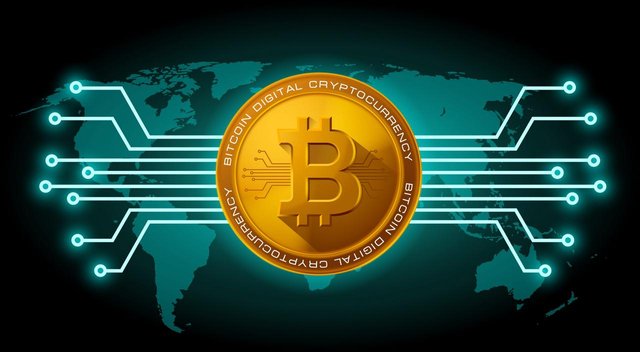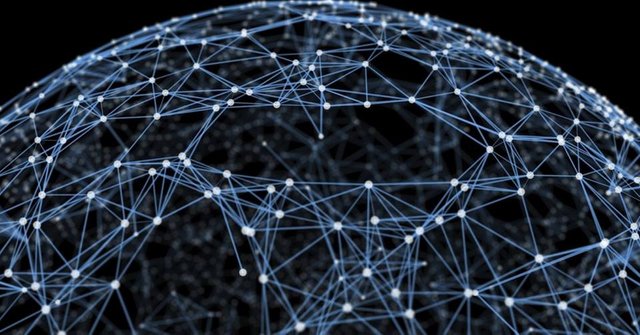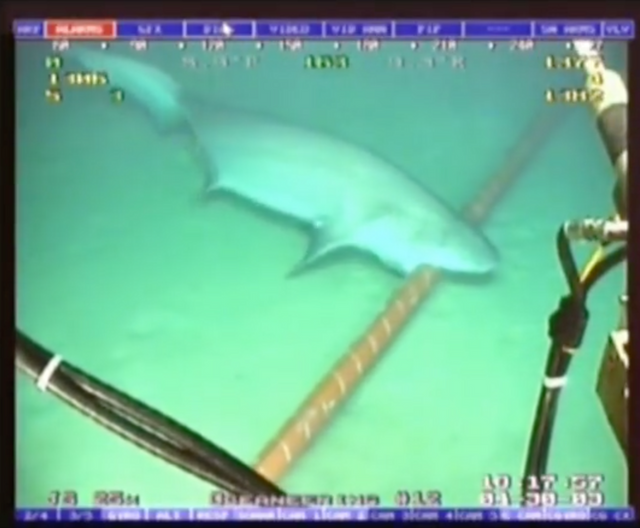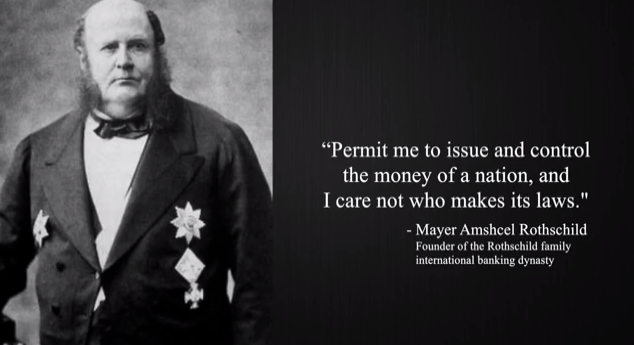What is Bitcoin?

When understood, Bitcoin is arguably the most important invention since the internet itself. An invention that will change money, politics, and human interaction forever. The problem is, it's not that easy to understand.
By the time you finish reading this article, my hope is that you will understand the basics. There's a lot to explore on this journey. Saddle up, choose the red pill, and I'll show you how far the rabbit hole goes…
THE PROBLEM
Great inventions solve great problems. So, what is the problem you might ask… The financial system in the developed world (America, UK, Germany, etc) is broken.
*Note if you already know the fatal flaws of central banking and fiat money, skip down to The Solution Environment.
OUR CURRENT FINANCIAL SYSTEM
If you live in the developed world, like I do (America), you need to know the following things about our financial system.
The root of our problem is central banking with no reserves. The Federal Reserve Bank was created by three ultra-wealthy families; the Rockefellers, the Rothschilds, and the Morgans (JP Morgan). The creation of this bank happened during a secret meeting held on Jekyll Island just off the coast of Georgia in 1910. The US government agreed to give this central bank the ability to control the money supply for the country, which included the creation of new money, as well as interest rates. At first the money created by the central bank was backed by a tangible asset, gold and silver. This is important because by tying the creation of money to a tangible and finite resource, like precious metals, it limited the central bank from haphazardly printing more money at their discernment. However, in 1971, the US fully went off the Gold standard. This created a Federal Reserve bank that is neither Federal, nor backed by reserves. It is a private institution of financial elites with the ability to print new currency, as they see fit, with no restriction. As the saying goes, absolute power corrupts absolutely.
From the time when the Federal Reserve Bank departed from the Gold standard until now, it has printed trillions of US dollars into existence. In fact, there is 26 times more money in circulation now then in 1971. This creates inflation, devaluing the currency. The US dollar has lost 99% of its value since money printing started. In ancient times, when gold and silver were money, the governmental treasuries would shave off small portions from the edges of the coins when they circulated back through the treasury. They used that excess scrap to fraudulently mint new coins, this of course was theft. It was creating value by fraudulently increasing the money supply. This is the same thing central banks do. They steel from the people via "quantitative easing", which is a fancy term for money printing. It is federally sponsored fraud.
The dollars the Fed prints are backed by nothing other than our faith in a US government that is essentially bankrupt. If you look at the front of a one dollar bill it actually says "Federal Reserve Note". The word note is short for "note payable", which is an account of debt. The US dollar is literally an "IOU", and the entity that stands behind it, the US government, is in the largest debt the world has ever known. Common sense might tell you this is a bad situation, and you're right.
Additionally, you should know that public banks, like Bank of America, Chase, etc, are owned by the public through stocks. However, the three families listed above, or their entities, are the majority shareholders in many of the public banks and therefore the primary owners. These "public" banks have a system called fractional reserves where they can lend 10 times more than they have in deposits. So, if you give the bank $10,000 to hold in your checking account, they can lend $100,000 in loans. You earn 0.01% interest or $1 per year but lose 3% to inflation, so you actually lose money by saving! The banks magically get to lend $100,000 at 6% as a mortgage loan with all the interest front loaded. The playing field is certainly not one of equal opportunity. It's also important to point out that the credit crisis of 2008 was largely created by public banks knowingly lending on incredibly risky loans and then reselling the debt as AAA financial instruments. At a fundamental level this is lying and it is fraud. When the credit bubble popped in 2008 the Federal Reserve Bank chose to print their way out of it and actually gave the free bail out money to the banks! The Fed stole from the citizens via money printing (again) and then handed the new money to the banks, who were the ones responsible for the crisis in the first place! They literally pay themselves with money they print.
Lastly, whenever we make a transaction in the developed world there are middle men (clearing houses) that need to validate the transaction and make sure it is legitimate. If you swipe a debit card at Starbucks it often times will go through one, to three, different clearing houses behind the scenes before it shows up with Bank of America. All of these third parties take a small cut of the transaction. It is highly inefficient behind the scenes and it's expensive. If I am doing a transaction between myself and Starbucks why do three other people need to get involved and all of them take a fee? It's just inefficient.
The craziest part of the system is that the US dollar is the reserve currency for the entire world. The reason being is that every other major currency in the world is also using central banks and fiat money so they are in as much trouble as we are. Fiat just means paper money that is backed by nothing. The US economy is a ticking time bomb, but as a result, so is the global economy because we are all linked by the reserve currency, the US dollar.
In summary, the US dollar is a debt note, an IOU, that is guaranteed by faith in a bankrupt government and a corrupt central bank that has the ability to print new debts notes from thin air. When they print money, they steal from everyone via inflation. They have special rules that allow them to lend at risky ratios enslaving the citizens. In fact, the word "mortgage" is from the Latin root word "mort" and put together literally means "death pledge". Lastly, the method of transfer and settlement for money is slow, expensive, and very inefficiently involves several intermediaries. The developed world's financial system is antiquated and broken.
THE SOLUTION ENVIRONMENT
The internet itself is not the solution but it does create the platform for a solution. If you want to understand Bitcoin, you have to understand the basics of the problem (described above) and you also need to be able to answer: What is the internet?
Seriously though, it's a weird question, I know, but can you explain; What is the internet?
*Note if you are an internet guru, skip down to What is Bitcoin?
THE INTERNET

The internet is a massive spider web of cable that connects one computer to another computer. Literally, it's a large lattice work of cable. There are actually intercontinental cables that connect the USA to Europe and each continent to the next. There are wires in your neighborhood that run into our homes and connect all of us. More specifically, many of the wires are fiber optic cables, which have interiors made of glass. Glass can transmit light particles (photons) through it. Light travels really fast. Like really really fast. When we transmit data over the internet, we flash messages in "0"s and "1"s via light pulses through glass wires. The glass transmits the light and the message travels through the fiber optic cable at 186,282 miles per second, which in technical terms is "fast AF". Setting up the cables of the internet is hard, expensive, time consuming work and sometimes mother nature fights against us. Here is a picture of a shark trying to eat the internet. Yup, this is real life, not a joke. (no sharks were harmed in the making of this blog)

In the beginning of the internet not everyone was connected. As it scaled to the level it is at today, virtually every person on planet earth became connected to each other and we can communicate with one another at the speed of light…. Literally. You might say that is not true though because what about all the people in the African bush, etc, who don't have a computer. Yes, true, people in the African bush might not be streaming Narcos on Netflix, through their Macbook pros, with fiber optic connections, while drinking a caramel frappuccino. However, roughly 50% of the world population has a smart phone, including people in highly remote areas. In this example, fiber optic cables are being run on the ocean floor connecting continents, which connect to a junction hub on the main land, which branches into a fiber optic cable that leads to a cell phone tower, even in remote areas. The data is then transmitted via radio waves over a shorter geographic area, which is picked up by the individual's cell phone.
Without getting overly technical here… The take away is that we are all connected. Highly connected! More connected that an any other time in the history of the world! By far! You can communicate with someone in Africa or Australia or anywhere, instantly, at the speed of light. Hi Mom!
WHAT IS BITCOIN?
Now for the fun part, the solution.
Bitcoin is open source computer software. It is not a tangible coin. This software creates a decentralized, peer to peer, electronic cash system that is not based on debt. Users place faith in mathematics rather than corrupt governments and central banks. The money supply of Bitcoin is finite and cannot be increased. You can send payment to any location on planet earth that is connected to the internet. It happens instantly, for close to free. The network is always open so you have access to your money 24/7 and 365. Payments are censorship proof, no one can stop you from transacting.
Bitcoin is financial wifey material. Bitcoin's exterior price is sexy (considering it started at zero just 9 years ago!) but when you look under the hood and get to know how the technology actually works, you might fall in love. Read on Romeo, I'm going to introduce you to financial Juliet and you will probably want to put a ring on it…
Finite Supply: There are currently about 16million bitcoins available. New supply comes into the network on a predetermined algorithm that is open source, so anyone can see it. The total number of coins that will ever be available is 21million, which will happen by the year 2140. That's the total number of Bitcoin there will ever be, period. Therefore, Bitcoin has a limited, finite supply, which is the opposite of currency created by central banks. Bitcoin is deflationary, not inflationary. In this system you are actually rewarded for responsible financial behavior, like saving, just ask some early adopters. This is basic economics…. The population is expanding infinitely and Bitcoin is not, which puts upward pressure on its price. In a way, you could say, Bitcoin is digital real estate.
Decentralization: There is no Bitcoin CEO, no board of directors, no central agency of control. There are no elite bankers who have the ability to manipulate the currency as they see fit for their own profit. Bitcoin is open source software that anyone in the world can run on their computer. It is so decentralized that no one actually knows the true identity of who created Bitcoin. The Bitcoin software was released onto the internet by an online alias named Satoshi Nakamoto in 2009. We do not know if Satoshi is a single person, or a group, and no one has heard from him/her/them since 2009. This was done by Satoshi intentionally to fully decentralize the power. Now the entire network is supported by the users, miners, and people running the software on their computer across the world. No "one" is in control, the network is in control, and that network's computing power is now 500,000 times more powerful than the world's most powerful super computer. I think Drake was recently quoted as saying, "started from the bottom now we're here".
Blockchain: There are thousands of computers across the entire globe that are running the Bitcoin software and are linked together by the cables of the internet we spoke about above. When an event happens on the network, it is broadcasted at the speed of light to all other computer nodes on the network. Immediately, everyone on the network knows what transactions just happened. The transactions on the Bitcoin network are organized into a public accounting ledger, referred to as a blockchain. This is simply a chronological block of transactions that is stacked on top of the next most recent block of transactions. It's a public accounting ledger for everyone to see. The beauty of a blockchain is that if one node tries to lie and enter a fraudulent transaction, it will not match the blockchain copy on the other 99% of the network, and therefore be discarded. This is the first time in the history of the world that we are able to reach consensus instantly without a centralized authority. This makes Bitcoin arguably the most secure network in the history of the world. It has been updating blocks every 10 minutes from 2009 until now, with not a single security breach on the network (when you have heard of "Bitcoin hacks" in the past they are always the hacking of third party sites that store the coins, the network itself has never been hacked). This is because you would need to attack at least 51% of the network to publish a fraudulent block as fact. Overcoming the computing power of 51% of the network to publish your fraudulent transaction is possible in theory but impossible in practice. The reward right now for hacking the Bitcoin protocol is hundreds of Billions of dollars in Bitcoin, that's Billions with a capitol B, and yet it has never been hacked! The transactions get published into the blockchain by a process calling "mining".
Mining: Mining is a process that incentivizes people on the Bitcoin network to only publish transactions to the blockchain that are valid. In return they can receive a reward. To be eligible for a reward, the user's computer needs to do significant "work" by solving a very difficult mathematical algorithm, which will seal that block of transactions. If the miner's computer solves the algorithm first, before other miners, they receive a small amount of Bitcoin as a reward. The "work" they have to exert in this process is the electricity that is consumed by the computer as it tries to solve the mathematical riddle. Currently it costs well over $1,000 USD of electricity to mine a block. When a computer solves the riddle, it validates and seals the block, and it gets added to the public ledger, referred to as the blockchain. That winning miner then receives a payment, in Bitcoin, as a reward.
Cryptography: One of the beautiful things about the internet is that you can copy things very quickly. Simple things, like Word docs, and more complex things, like music files or movies, can all be copied and shared. In order for Bitcoin to work you would need to make a "coin" that cannot be copied and pasted because that would destroy the rarity of it and completely devalue the network. In fact, people have been trying to create digital cash since the 1970's but they were always unable to solve the "double spend" problem. Simply put, the double spend problem is the ability to copy and paste the coin, hence duplicating it and destroying its value. Thanks to cryptographic mathematics, discovered in 1985, the double spend problem could finally be solved. Bitcoin uses the cryptography of Elliptical Curve Mathematics (ECM). ECM allows a person to create multiple points on an elliptical curve in a finite space and have those points all related to each other mathematically. However, the breakthrough with ECM is that if you have one point on the curve you can solve for the second point in the forwards direction, but unlike algebra, you cannot back solve for the original point. Through Elliptical curve mathematics a bitcoin user can hold a private key that is mathematically related to their bitcoin's address but no one is able to backwards solve to generate that private key. This allows the holder of the private key to be the sole person with authority to move the coin. Therefore, Bitcoins are cryptographically secure. Supreme security via math!
Borderless: Prior to the internet, financial services and banking was really not available to underdeveloped countries. Now with the Bitcoin network, any person on planet earth with a smart phone has a Swiss bank account in their pocket! There is hope for the unbanked when all there used to be was Western Union money grams, which can charge as high as 25% fees. Now, the unbanked are banked. It's essentially free, and it's instantaneous. No evil dictators can stop a person from transacting or deny financial freedom. Perhaps for the first time in history remote places of the world have a fair shot at overcoming poverty through access to financial services.
Crypto will do more than just change money. It will overthrow governments. As Mayer Amschel Rothschild said, "Let me issue and control a nation's money and I care not who writes the laws". When money is decentralized, the power is in the hands of the people, not a central authority. There are already fiat world currencies that have failed, such as in Greece, and recently Venezuela. There will be more that fail in the coming years. In the near future we will also see blockchain technology revolutionize how we vote, account for ownership in assets like real estate and cars, and the way we interact with people on social media. This very article is actually posted on a decentralized blockchain based social media platform called SteemIt. On this platform the curators of content are rewarded with payments in cryptocurrency rather than the centralized agency making money off the users like Facebook, Instagram, and Twitter. The world is changing, quickly!
It is important to remember though that right now, Bitcoin is still primarily valued in US dollars. The revolution is complete when we no longer refer to Bitcoin by its US dollar amount but rather refer to things in their Bitcoin amount. For example, that house by the water is selling for 3.98 Bitcoin!

ABOUT THE AUTHOR
My interest in the cryptocurrency space started in 2015 and lead to investing in 2016. My passion for this space was not love at first site. Like many, I was skeptical, but the more I learned about how Bitcoin works under the hood, the more I realized the magnitude of this invention. I have some experience with investing via long term hold strategies, short term manual swing trades, ICO analysis, high frequency trading robots, and mining. While crypto is a hobby, my full-time passion is Slater Lighting, which is a wholesale lighting agency I created in 2011. More information can be found at www.slaterlighting.com . Perhaps one day we will price our lighting jobs in units of Bitcoin! Additional hobbies are surfing and aviation.
Thank you for such an excellent post, very didactic for all of us who follow the world of Critpmonedas and the market. Blessings !! @heyslater